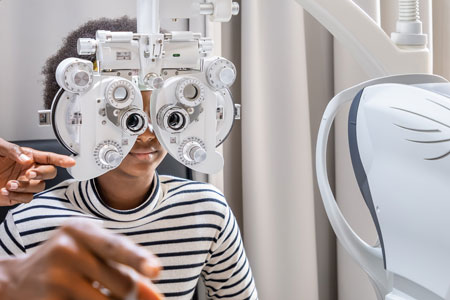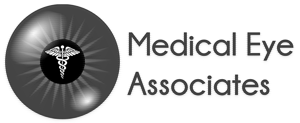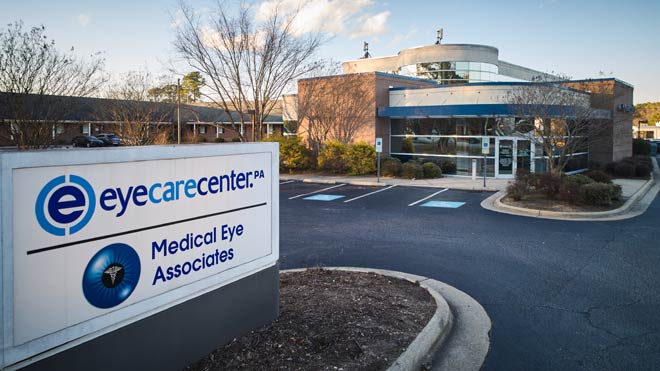Comprehensive Eye Exams

What's involved in an eye exam?
A complete eye exam involves a series of tests designed to evaluate your vision and check for eye diseases. It doesn't hurt. Your doctor may use odd-looking instruments, aim bright lights directly at your eyes and request that you look through a seemingly endless array of lenses. Each test evaluates a different aspect of your vision.
The eye exam usually begins with your doctor asking about your medical history and any vision problems you might be experiencing. Next, your eye doctor makes a quick check of your eyes using a light to ensure the exterior parts of your eyes are functioning correctly. Finally, your doctor measures your visual acuity, assesses your need for glasses and examines your eyes for signs of disease. Part of the examination, such as taking your medical history and the initial eye test, may be performed by a technician who assists your doctor.
How should you prepare for an eye exam?
If you're seeing a new eye doctor or if you're having your first eye exam, expect questions about your vision history. Your answers to these questions help your eye doctor understand your risk of eye disease and vision problems. Be prepared to give specific information, including:
- Are you having any eye problems now?
- Have you had any eye problems in the past?
- Do you wear glasses or contacts now? If so, are you satisfied with them?
- What health problems have you had in recent years?
- Are you taking any medications?
- Do you have any allergies to medications, food or other substances?
- Has anyone in your family had eye problems, such as cataracts or glaucoma?
- Has anyone in your family had diabetes, high blood pressure, heart disease or any other health problems that can affect the whole body?
If you wear contact lenses, bring them to your appointment. Your eye doctor will want to make sure your prescription is the best one for you. Also be prepared to remove your contacts for certain exams. Tests that use orange dye (fluorescein) to temporarily color your eye may permanently dye your contact lenses. You’ll want to take them out before those types of tests.
Common Eye Problems
Your best defense is to have regular checkups, because eye diseases do not always have symptoms. Early detection and treatment could prevent vision loss. See an eye care professional right away if you have a sudden change in vision or everything looks dim or if you see flashes of light. Other symptoms that need quick attention are pain, double vision, fluid coming from the eye and inflammation.
Some eye problems are minor and fleeting. But some lead to a permanent loss of vision. Common eye problems include:
- Cataracts - clouded lenses
- Glaucoma - damage to the optic nerve from too much pressure in the eye
- Retinal disorders - problems with the nerve layer at the back of the eye
- Conjunctivitis - an infection also known as pink eye



